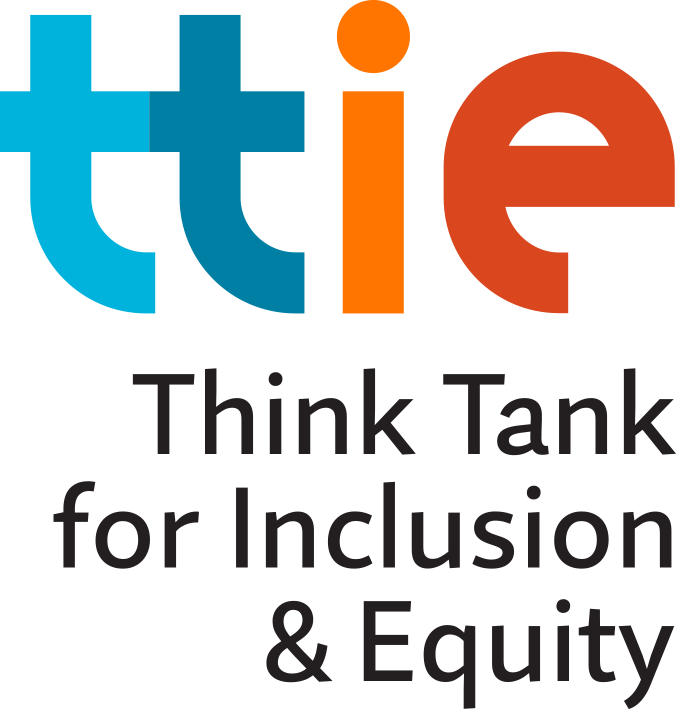#WriteInclusion Factsheets
Expanded glossary of terms
Scroll down to read our full glossary, or click to filter by a specific Factsheet category.
FILTER BY FACTSHEET
SEARCH FOR A SPECIFIC TERM
Toxic Masculinity
How the promoted “norm” of masculinity and “manliness” perpetuates negative and violent behaviors like aggression, domination, devaluation of women, and homophobia. Adherence to traditional male gender roles also stigmatizes and limits the emotions, traits, and behaviors that men and boys feel comfortable expressing for fear of being perceived as weak or feminine.
How the promoted “norm” of masculinity and “manliness” perpetuates negative and violent behaviors like aggression, domination, devaluation of women, and homophobia. Adherence to traditional male gender roles also stigmatizes and limits the emotions, traits, and behaviors that men and boys feel comfortable expressing for fear of being perceived as weak or feminine.
Trauma Porn
Refers to art or media that exploits the pain, suffering, and brutalization of marginalized people for the sake of entertainment. These depictions cater to non-marginalized viewers and characters rather than exploring the experience, situation, or POV of the person(s) being victimized. These kinds of depictions are harmful for all viewers as they deny the life and livelihood of those being victimized, devaluing their existence in our communities and society, granting no opportunity for empathy and deeper understanding.
Refers to art or media that exploits the pain, suffering, and brutalization of marginalized people for the sake of entertainment. These depictions cater to non-marginalized viewers and characters rather than exploring the experience, situation, or POV of the person(s) being victimized. These kinds of depictions are harmful for all viewers as they deny the life and livelihood of those being victimized, devaluing their existence in our communities and society, granting no opportunity for empathy and deeper understanding.
U.S. Census
The U.S. Constitution mandates that America gets only one chance every 10 years to count its population. The U.S. Census counts every resident in the United States. The data collected determine the number of seats each state has in the U.S. House of Representatives (a process called apportionment) and is also used to distribute billions in federal funds to local communities. Find more here.
The U.S. Constitution mandates that America gets only one chance every 10 years to count its population. The U.S. Census counts every resident in the United States. The data collected determine the number of seats each state has in the U.S. House of Representatives (a process called apportionment) and is also used to distribute billions in federal funds to local communities. Find more here.
Wage Gap
Refers to the difference in wages earned between men and women and non-binary people in the workforce. Women and non-binary people consistently make less than men (and Black, Indigenous, and Latinx women earn less than their white and Asian counterparts, with disabled women earning less than non-disabled women). Also known as the “gender pay gap.” Read more about how the wage gap impacts Black women, Indigenous women, and Latinx women.
Refers to the difference in wages earned between men and women and non-binary people in the workforce. Women and non-binary people consistently make less than men (and Black, Indigenous, and Latinx women earn less than their white and Asian counterparts, with disabled women earning less than non-disabled women). Also known as the “gender pay gap.” Read more about how the wage gap impacts Black women, Indigenous women, and Latinx women.
WASH Inequality
Stands for water, sanitation, and hygiene. Women and girls face disproportionate inaccessibility to WASH; less likely to have access to hygiene products, clean water, and safe, enclosed bathing facilities. This makes them more vulnerable to disease, violence, and poverty.
Stands for water, sanitation, and hygiene. Women and girls face disproportionate inaccessibility to WASH; less likely to have access to hygiene products, clean water, and safe, enclosed bathing facilities. This makes them more vulnerable to disease, violence, and poverty.
WLW
Stands for “woman-loving woman” or “women-loving women.” This term has become a unifying label for a woman who is attracted to and/or has emotional, romantic, and sexual partnerships with other women (e.g., lesbians, pansexual women, sapphics, same-gender-loving women). Often stylized as “wlw.” For more.
Stands for “woman-loving woman” or “women-loving women.” This term has become a unifying label for a woman who is attracted to and/or has emotional, romantic, and sexual partnerships with other women (e.g., lesbians, pansexual women, sapphics, same-gender-loving women). Often stylized as “wlw.” For more.
Womxn
An alternative spelling of “women/woman” (pronounced the same) to remove the use of “men/man.” This term is particularly used by intersectional feminists to show inclusion of trans, non-binary, BIPOC, and disabled women. However, it should be noted that many transgender and non-binary people find the term exclusionary and even offensive, as it implies that the word "woman" is not already inclusive of transgender women. Use with caution.
An alternative spelling of “women/woman” (pronounced the same) to remove the use of “men/man.” This term is particularly used by intersectional feminists to show inclusion of trans, non-binary, BIPOC, and disabled women. However, it should be noted that many transgender and non-binary people find the term exclusionary and even offensive, as it implies that the word "woman" is not already inclusive of transgender women. Use with caution.
